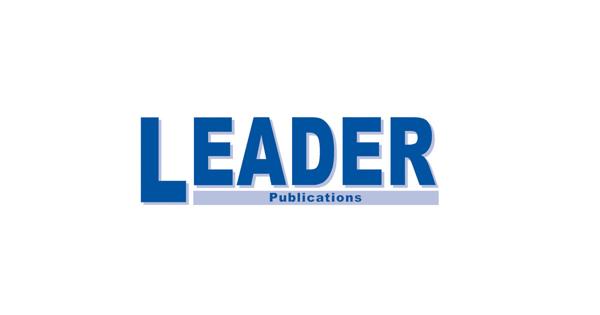ST. LOUIS — Write essays, pay fees, list extracurriculars, get letters of recommendation — then wait weeks or months. This is what the college admissions process typically requires of high schoolers.
But a growing number of colleges and universities are trying a new approach to boost enrollment. Schools such as the University of Missouri-St. Louis and Maryville University are beginning to offer admission to qualifying students who haven’t even formally applied.
The process is called “direct admissions.”
“We’re saying, ‘Let’s figure out a way to connect with students and democratize the admissions process,’” UMSL’s Vice Chancellor for Strategic Enrollment Reggie Hill said.
UMSL offered more than 800 students admission this fall through direct admissions. Of those, 114 committed to enrolling, and 76 registered to attend in the fall.
It works like this: Students create a profile on college search or application platforms such as the Common App. They input basic academic information: their high school, grade point average, desired major, test scores.
Through the platform UMSL uses, a college search site called Niche, colleges send students “conditional” admissions offers based on certain criteria such as GPA. A student’s academic information is later verified through official transcripts or other records.
The idea isn’t new. States like Idaho, Minnesota and Illinois have already implemented state-sponsored direct admissions programs for their public institutions.
But streamlining recruitment efforts has taken on a new urgency with changing U.S. demographics and attitudes about higher education. Fewer Americans see the value in a college degree as the cost of obtaining one rises, and declining birth rates have led to fewer college-age students.
In Missouri alone, the number of students in two- or four-year colleges has dropped by 10% since 2018. Plus, with younger generations more online than ever, admissions officers have had to figure out ways to meet students where they are.
“Fifteen or 20 years ago, it was all about touring campuses and brochures,” Hill said. “Now students are able to go and look at our profile, look at our scores and rankings and what other students are saying about us, and then decide to visit campus.”
Will it work?It’s still unknown whether direct admissions will boost college enrollment.
One 2023 study found automatic offers increased applications, particularly from low-income, first-generation or racially marginalized students. However, it did not increase actual enrollment. Affordability is still a major barrier, and “direct admissions is not a replacement for financial aid,” the study noted.
Still, it’s convenient for many.
Students like Megan Shipp, who tried applying to colleges the traditional way, said getting automatic offers from schools she didn’t even apply to was like “a weight off of me.”
“It was very easy,” Shipp said. “I did have to send my transcript ahead of time, but it made it a less stressful situation.”
Shipp will attend UMSL this fall. She hadn’t heard of the university before she received a direct admission offer from it but said she picked the school because of its placement in St. Louis. She said she heard that it is similar to her hometown of Memphis, Tennessee. She also liked its diversity.
“I feel like I wouldn’t stick out, like many other African American students do at some universities,” Shipp said.
Reducing pressure
UMSL was a test school for a new direct admissions program through Niche, a massive college search platform. Students input their interests and priorities, and the platform recommends schools that best suit them. Colleges also have their own profiles, which can include hundreds to thousands of reviews from alumni or current students.
Other Missouri schools — Northwest Missouri State University, Missouri S&T, Southeast Missouri State University and University of Central Missouri, which also works in-house with partnering high schools for direct admissions — will start using Niche Direct Admissions next fall.
Once students are notified of their admission offer, they can complete a simplified online application and upload an official or unofficial transcript if they’re interested in the college.
Nationally, in the fall 2024 enrollment cycle, close to a million students received at least one college acceptance offer through Niche.
“We felt like there was a big opportunity to reduce some of the unnecessary friction, stress and trauma related to (getting into college),” Niche founder and CEO Luke Skurman said.
Direct admissions offers often include automatic scholarships, which are also offered through the traditional application process to make sticker prices less intimidating.
Growing use
Maryville will participate in Niche and the Common Application’s direct admissions programs next fall. The Common App, a widely used platform that allows students to apply to multiple colleges through a single application form, launched a direct admissions program in October.
Vice President of Enrollment Shani Lenore-Jenkins said Maryville will look for students with a minimum 3.25 GPA and offer them scholarships based on a tiered system.
Unlike other nearby colleges that have seen lowering or stagnant enrollment in the last decade, Maryville’s undergraduate enrollment has grown. The university reported the fall 2023 academic year marked 17 straight years of undergraduate enrollment growth.
An independent auditor’s report shows Maryville’s undergraduate enrollment rose 36% from 2019 to 2023, but total enrollment dropped slightly, from 10,013 to 9,884 students, as graduate enrollment dipped.
Undergraduate growth coincided with Maryville working toward access and making the admissions process easier, Lenore-Jenkins said. In 2015, Maryville stopped requiring standardized test scores for first-year or transfer admission. It removed the essay requirement three years after that.
Direct admissions could further diminish barriers, Lenore-Jenkins said, and expose students to colleges that may not have been on their radar.
“Even if they don’t select your institution, I think the end game is giving students more options,” Lenore-Jenkins said.
